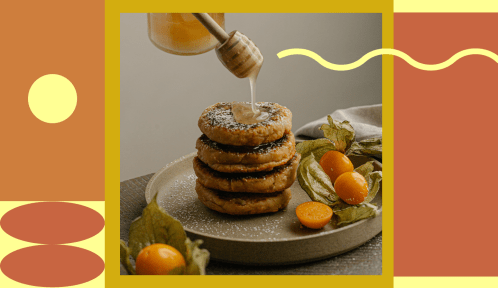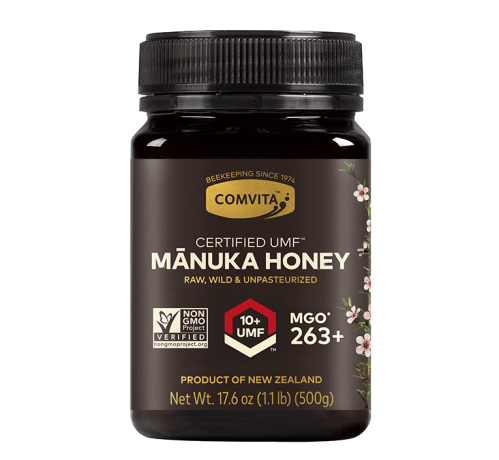advertisement
‘I’m an RD, and This Is Why Manuka Honey Is the Anti-Inflammatory Ingredient I Put on Everything’
A registered dietitian explains why Manuka honey is an easy way to add more anti-inflammatory ingredients to your day.

If you’ve been on social media lately, you’ve probably seen buzzy anti-inflammatory recipes or ingredients (such as honey) being touted by creators. And sure, this all sounds great, but have you ever wondered what anti-inflammation actually means?
In short, inflammation is what it sounds like—becoming red, swollen, or generally annoyed. When it happens within your body, it can lead to other issues, says Ginger Hultin, RD, the author of two anti-inflammatory meal-prep books. “Inflammation that’s overactive or chronic becomes a problem for your health and can lead to chronic health conditions and feeling poorly—in pain, fatigued, lethargic—so making sure that you have an anti-inflammatory diet and lifestyle is critical for health,” she says.
That said, don’t freak out—because not all inflammation is bad. “Ultimately, the goal is to support the body in utilizing inflammation in the right way,” Hultin explains. “Acute inflammation—like if you cut yourself or twist an ankle—is critical for healing and staying healthy.” So, next time your elbow swells up post-pickleball, that might just actually be your body’s way of helping you out.
One easy way Hultin has found for supporting her anti-inflammatory goals is including Manuka honey in her daily routine. The sweetener not only contains beneficial prebiotics, but also has antioxidant properties, both of which will have your gut cheering you on (got to love an ingredient that sweetens and supports). “Honey can be part of a healthy, balanced, and anti-inflammatory diet,” Hultin says. “I recommend it as a great way to naturally sweeten certain foods.”
But not all Manuka honey is created equal. If you’re looking for an authentic, high-quality option, try Comvita’s UMF 10+ Raw Manuka Honey. You know this is the real deal because of the UMF certification, which is a gold-standard rating that indicates the potency of Manuka honey on a scale of zero to 20. The lower grades are more for everyday wellness, while “the higher grades are considered ‘Therapeutic Grade,'” Hultin says. “Studies show that UMF 10+ have more antibacterial properties.”
Keep scrolling to find out more about Manuka honey’s anti-inflammatory perks, and how to add it into your day.
Comvita UMF 10+ Raw Manuka Honey

Comvita UMF 10+ Raw Manuka Honey — $55.00
How Manuka honey can help lower inflammation
Manuka honey contains a line-up of compounds known for their anti-inflammatory power, says Hultin. Specifically, flavonoids and phenolic acids, as well as certain enzymes.
Manuka honey has long been used in traditional medicine for its antibacterial properties, too. “[Manuka honey] has been studied for health benefits such as wound healing because of its antibacterial properties and may help to calm inflammation because of its antioxidant content,” Hultin notes. “There [is] a very unique compound, Methylglyoxal, which researchers believe may provide the most potent antibacterial support in Manuka honey specifically.”
So, next time you’re having an acne flare-up, try a Manuka honey face mask to help bring down the inflammation.
How to add more Manuka honey to your day
If you want to add more Manuka honey benefits to your plate (or bowl, or cup…) the possibilities are really endless. Drizzle it on top of your breakfast yogurt. Blend it into your morning smoothie. Add it to your coffee for a sweetened caffeine boost.
“I like to use it to brighten up overnight or stovetop oats, drizzled over granola or toast, or even as a glaze on something savory like salmon or tofu,” Hultin says. You can also use it to make protein bites, like these birthday cake ones, or use it to jazz up your favorite sauce, salad dressing, or marinade. Swipe, drizzle, stir, blend—the choice is yours.
Sign up for the Well+Good SHOP Newsletter
Get exclusive deals on wellness, beauty, fitness, and food products that have been hand-picked by our editors.
Got it, you've been added to our email list.




